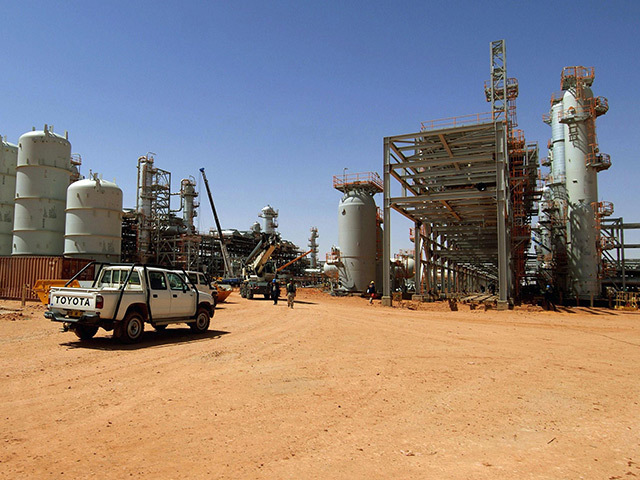
The security measures around an Algerian oil plant where forty people were killed earlier this year were not sufficient to protect workers, a report into the massacre has found.
The terrorist attack on the In Amenas plant in January saw oil workers – including three British workers – killed at the plant, which was operated by BP, Statoil and Algerian firm Sonatrach.
Now an investigation into the tragedy by Statoil has concluded that the security measures at the facility were not constructed to withstand such an attack.
The report, published today by the Norwegian oil giant, found that the operators of the plant could not have prevented the attack but questioned the extent of their reliance on protection from the Algerian military.
MORE:
Read the Statoil report into the attack
Scots attack survivor tells of his terror
Five Statoil employees were among the people killed when the attack took place, with 32 armed terrorists stormed the facility and took many of the plant’s 800 staff hostage in a four-day siege.
“The attack was a tragedy for those affected, and a dramatic incident in Statoil’s history,” said chief executive Helge Lund.
“The report reflects the seriousness of the incident. The report points out areas within our security work that require improvements and increased focus.”
Statoil’s report, which was led by former Norwegian intelligence service head Torgeir Hagen and included British counter-terrorism expert Michael Fulcher, was based on 136 interviews with survivors, emergency services and management at the oil giant, along with two visits to the terror attack site.
It makes 19 recommendations for improving security at facilities in Algeria after finding that several anti-terror measures supposed to have been installed at the plant were delayed, in some cases for years.
“In 2009, following an increase in suicide and vehicle bombs in Algeria, the In Amenas joint venture decided to strengthen protection of the site,” the report said.
“This lead among other measures to the concrete vehicle barriers outside the perimeter fence. Liaison recommended security standards and measures to increase protection against the threat of armed attackers, forced vehicle penetration of gates or the perimeter, or a vehicle bomb.
“The full range of security measures recommended at this time was not designed to withstand an attack of the scale and complexity that took place on 16 January.
“There were a number of delays in installing these securing upgrades ranging from six months to several years. Some security improvements were promptly executed, such as erection of fences and lighting. Others were delivered, yet not installed and then shelved altogether, such as electronic access control, and some were repeatedly delayed, such as completion of the concrete vehicle barriers.
“The investigation team had learned that a combination of factors created delays: the time for procurement processes, equipment lead times and getting contractors to site in the austere and remote environment.”
A coroner’s inquest is underway in the UK into the attack, along with criminal investigations in Algeria, the USA, Canada, Norway and Japan.
A spokesman for BP said the company could not comment on specific security measures which had been put in place since the attack, but that it supported the investigation carried out by its partners in the plant.
“Our thoughts and sympathies remain with the families of all those who were killed and impacted by this terrible event, as well as all those affected by the incident,” the company said.
“As this report confirms, this was an unprecedented and unimaginable attack. No terrorist attack of this scale on any oil and gas installation in Algeria had happened before despite significant periods of unrest in the country and region over decades.
“Furthermore the investigation found no evidence to suggest that there was any specific threat or actionable warning of an attack at In Amenas. The safety and security of personnel has been and continues to be BP’s utmost priority.
“Since the attack, BP and Statoil have jointly carried out thorough and extensive reviews of security arrangements in Algeria and are working with Sonatrach and the joint venture on the implementation of a programme of security enhancements which came out of those reviews.
“The determined focus of BP and our partners in the In Amenas joint venture is to do all we can to prevent any such incident from happening again. BP co-operated with Statoil’s investigation and will support all official investigations carried out by relevant authorities and review all outcomes to determine what can be learned for the future.” what can be learned for the future.”
Recommended for you
